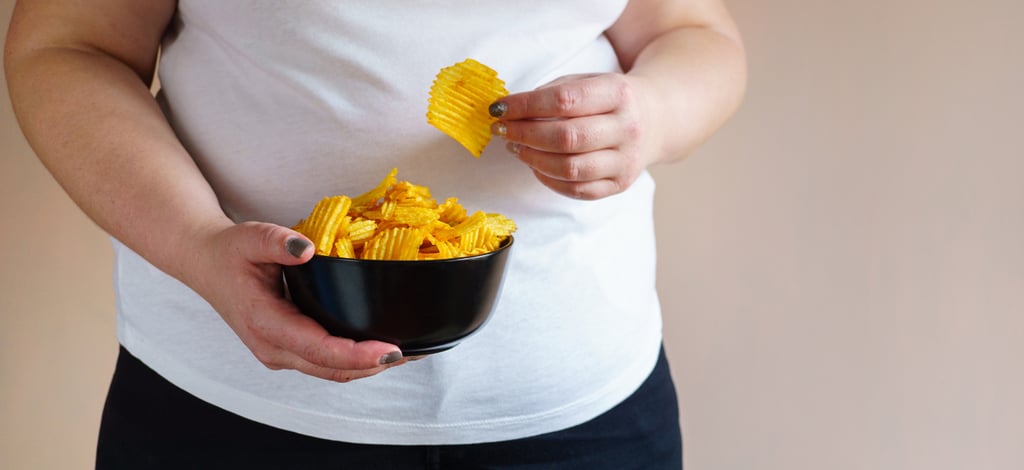Ultra-processed foods: why you should keep them off your plate
Learn why ultra-processed foods harm your body and mind, increasing risks of obesity, diabetes, and cancer — and how to replace them with real food.
7/10/20243 min read


Introduction
In today’s fast-paced world, convenience often dictates our choices — including what we eat. With busy schedules and endless commitments, ready-to-eat foods seem like the perfect solution. Just open, heat, and enjoy.
But this convenience comes at a cost — your health. Ultra-processed foods dominate supermarket shelves and daily meals, silently contributing to chronic diseases far beyond simple weight gain.
In this article, you’ll understand what ultra-processed foods are, why they’re harmful, and how to reduce your dependence on them for a healthier, more balanced life.
What are ultra-processed foods?
Ultra-processed foods are industrial formulations made from substances derived from food or chemically synthesized in labs. They go through multiple processing stages, losing nearly all resemblance to their natural origins.
These products are loaded with chemical additives like preservatives, colorants, flavor enhancers, and emulsifiers — substances you’d never find in a home kitchen.
In short, they’re not just processed — they’re ultra-processed, designed to last longer, taste stronger, and make you crave more.
Common examples include:
Soft drinks and artificial juices
Packaged cookies and biscuits
Frozen sausages, nuggets, and burgers
Instant noodles and powdered soups
Cereal bars full of additives
Colorful breakfast cereals
Potato chips and snack foods
“Healthy” or “fit” processed products with misleading labels
Why are they so harmful?
Behind the attractive packaging and addictive flavor lies a nutritional trap that harms your body — and mind — over time.
1. Low Nutritional Value
Ultra-processed foods are high in calories but low in essential nutrients like fiber, vitamins, and minerals. They’re also rich in added sugars, unhealthy fats, and sodium — a combination that leads to inflammation and metabolic imbalance.
2. Contribute to weight gain and obesity
Their high energy density and low satiety make you eat more than necessary. Frequent consumption is directly linked to rising global obesity rates.
3. Increase the risk of chronic diseases
Research consistently shows that diets high in ultra-processed foods increase the risk of:
Type 2 diabetes
Hypertension
High cholesterol and triglycerides
Cardiovascular diseases
Certain cancers, especially digestive tract cancers
A study in the British Medical Journal found that people who consume more ultra-processed foods have a significantly higher risk of premature death from all causes.
4. Harm mental health
It’s not just your body that suffers — your mind does too. Recent studies link high consumption of ultra-processed foods to depression, anxiety, and mood swings. The lack of nutrients and the excess of artificial additives may disrupt neurotransmitter balance.
5. Create food addiction
Designed to be “hyper-palatable,” these foods stimulate the brain’s reward system, much like addictive substances. This makes it difficult to stop eating them, even when you know they’re harmful.
Why are they everywhere?
Their popularity isn’t accidental. Ultra-processed foods are cheap to produce, have a long shelf life, and are backed by massive marketing campaigns.
The food industry invests millions to create colorful packaging and slogans that make these products seem healthy, fit, or natural. Labels such as “high in fiber,” “sugar-free,” or “whole grain” can be deceiving — a quick glance at the ingredient list often reveals a mix of artificial chemicals.
Moreover, limited access to fresh foods in many regions makes these products the easiest — and sometimes the only — option. The result is a false sense of convenience that slowly undermines long-term health.
How to reduce ultra-processed food consumption
The good news: breaking free from ultra-processed foods is entirely possible — and it starts with small, practical steps.
1. Read labels carefully. The longer and more chemical-sounding the ingredient list, the more processed the food.
2. Choose real, minimally processed foods. Prioritize fruits, vegetables, whole grains, seeds, fresh meats, eggs, and milk.
3. Avoid impulse shopping. Plan meals and make a list before going to the store.
4. Cook more at home. Homemade meals give you full control over what goes on your plate.
5. Make smart swaps. Replace cookies with fruit and nuts, and soda with lemon water or iced tea.
6. Take it slow. You don’t need to cut everything at once — gradual reduction already brings major benefits.
Conclusion
Ultra-processed foods may look harmless, but their long-term impact is anything but. The key to well-being is returning to real food — what comes from nature, not from a factory.
Eating well doesn’t have to be complicated or expensive. It’s about choosing foods that nourish, not just fill.
Avoiding ultra-processed foods isn’t about restriction — it’s about self-care. Your body deserves more than convenience. It deserves real health.
Health
Tips for a healthy and balanced life.
© 2025. All rights reserved.
Well-being
Privacy Policy
Terms and conditions
